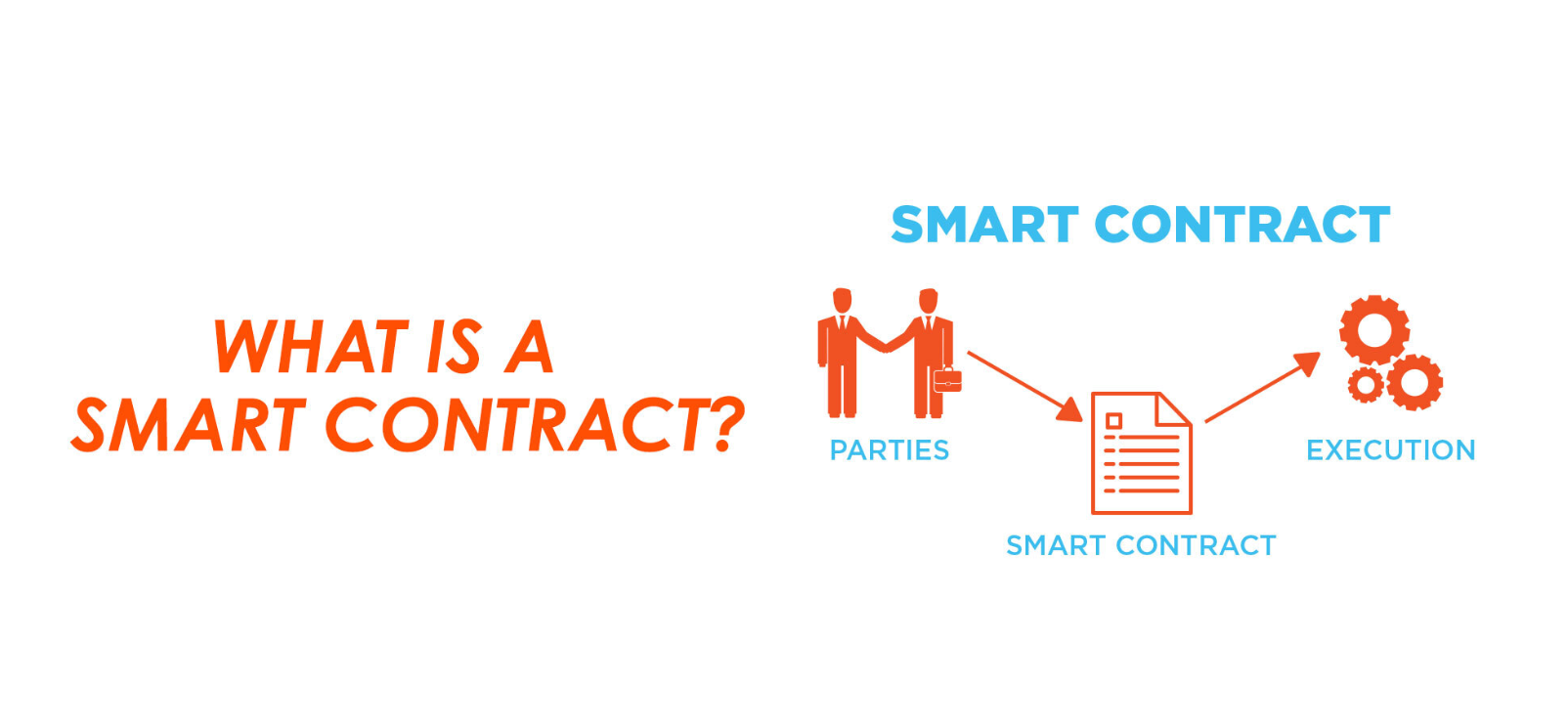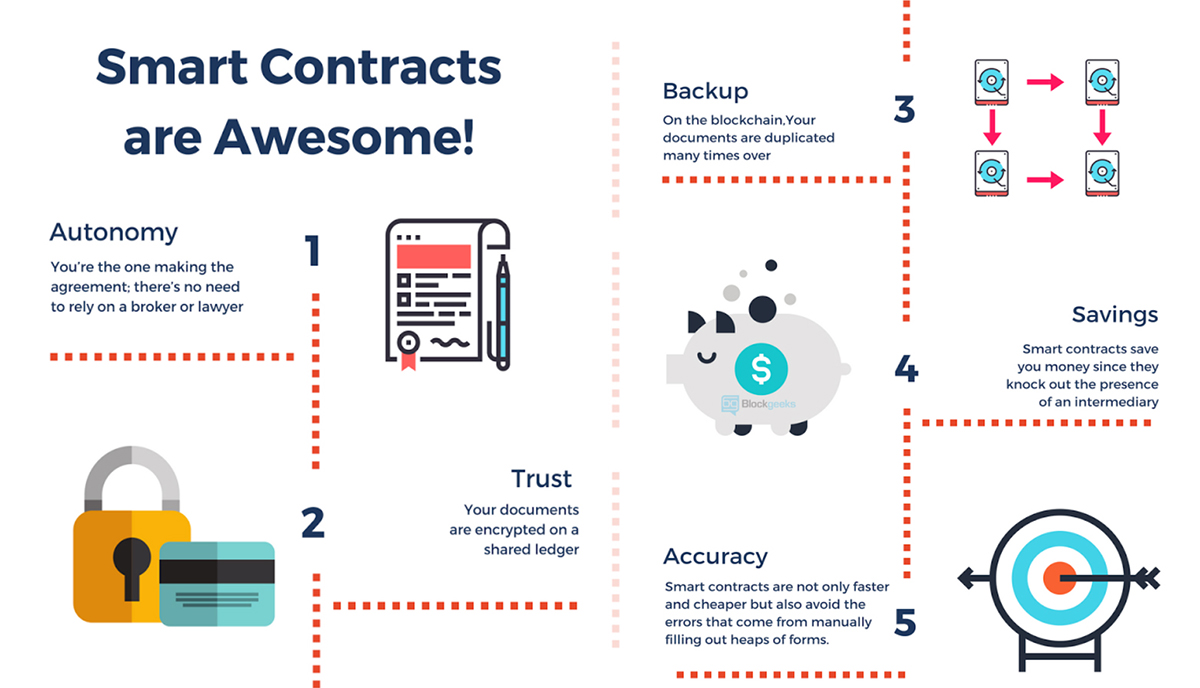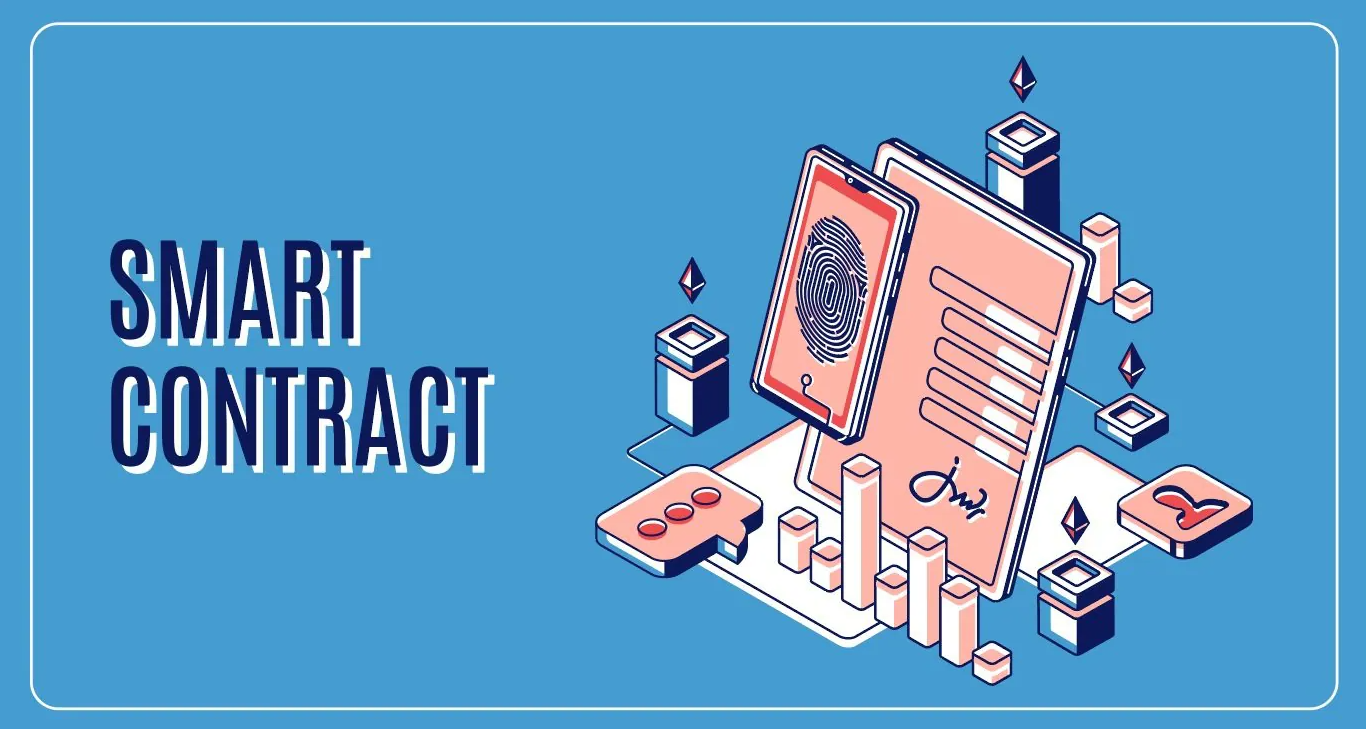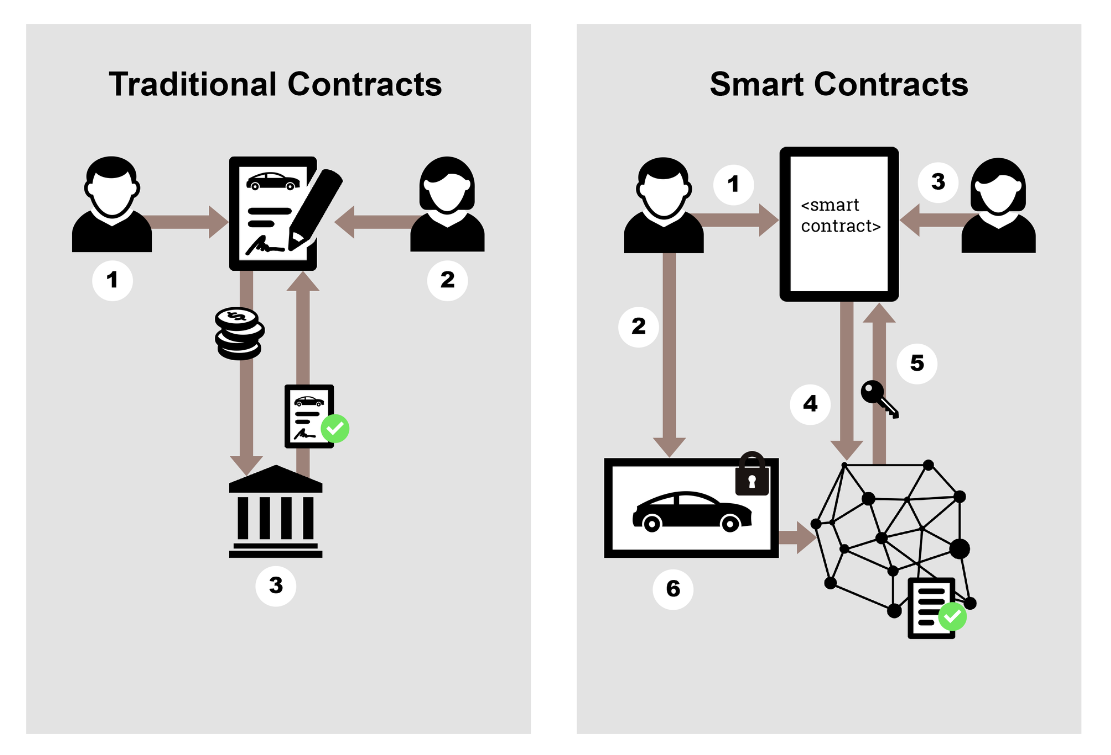Smart Contracts Demystified: Exploring Smart Contract Use Cases

Smart contracts, the revolutionary offspring of blockchain technology, are transforming the way agreements are executed. Their potential goes far beyond just cryptocurrencies, yet understanding their nuances is no walk in the park. In this comprehensive guide, we’ll delve deep into the world of smart contracts, unraveling their intricacies, exploring a multitude of real-world applications that stretch across industries, and even learn how to create one. We’ll also examine the profound impact of smart contracts on the market.
Understanding Smart Contracts

Understanding Smart Contracts
Breaking Down the Basics
To comprehend smart contracts fully, we need to start at the beginning. At its core, a smart contract is a self-executing digital agreement that enforces the terms and conditions encoded within it. This piece of code, residing on a blockchain, automates transactions and reduces the need for intermediaries. To illustrate, think of it as a vending machine. When you insert coins (input data), the machine dispenses the requested item (executes the contract). But let’s go beyond the vending machine metaphor and uncover the technical wizardry behind smart contracts.
Smart contracts are typically written in Solidity, a programming language designed for the Ethereum blockchain. Solidity, like a tailor’s tape measure, specifies the dimensions of the contract. In other words, it dictates the rules and logic by which the contract operates. The beauty of this is that it eliminates human error and ensures that agreements are executed as intended. We’ll explore the intricacies of Solidity and delve into its syntax, providing a glimpse into the programming magic that underlies smart contracts.
The Ethereum Ecosystem
Ethereum, often considered the birthplace of smart contracts, plays a pivotal role in their operation. Much like a sprawling city with various districts, Ethereum consists of multiple components that work together seamlessly. Ether, the native cryptocurrency, fuels the Ethereum network, powering transactions and computational tasks. Gas, akin to the fuel you put in your car, is the unit of measurement for computational work on the network.
The Ethereum Virtual Machine (EVM), in the realm of smart contracts, serves as the heart and brain. It’s the engine that executes the code and ensures that agreements are honored. But what happens when a contract misfires or contains a bug? Enter the world of ‘smart contract audits,’ where experts scrutinize the code to identify vulnerabilities. It’s like a building inspector examining a skyscraper to ensure it can withstand an earthquake. We’ll dissect the auditing process and its critical importance in smart contract development.
Smart Contract Platforms Beyond Ethereum
While Ethereum is the most famous smart contract platform, it’s not the only player in the game. Platforms like Binance Smart Chain, Polkadot, Cardano, and Tezos have gained traction for developing and deploying smart contracts. We’ll explore the unique features and benefits of these alternative platforms and how they are expanding the smart contract ecosystem.
How to Create a Smart Contract

How to Create a Smart Contract
Creating a smart contract can be an intricate process, and it requires a good understanding of the underlying technology and programming languages. Here are the fundamental steps to create a smart contract:
- Choose a Blockchain Platform: The first step is to select the blockchain platform on which you want to deploy your smart contract. Ethereum is the most popular choice, but alternatives like Binance Smart Chain, Polkadot, and Tezos provide different features and cost structures. Your choice depends on your project’s specific requirements.
- Learn the Required Language: The primary language for writing smart contracts on Ethereum is Solidity. You’ll need to become proficient in Solidity to create and deploy your contracts. Many online resources, tutorials, and courses can help you grasp this language.
- Code Your Smart Contract: With a good understanding of Solidity, you can start coding your smart contract. The code defines the rules, conditions, and logic of your contract. Ensure that your code is secure and free from vulnerabilities. Auditing your code or seeking professional help can be vital in this phase.
- Deploy the Smart Contract: Once your smart contract is coded and tested, you’ll need to deploy it to the blockchain. This process involves interacting with the blockchain platform’s tools and interfaces to upload your code to the network. It requires a certain amount of cryptocurrency as gas to execute the deployment.
- Test and Interact: After deployment, it’s crucial to test your smart contract to ensure it works as intended. You can do this by interacting with it on the blockchain, just as users would. This phase helps identify any issues or bugs that might need fixing.
- Manage and Update: Smart contracts, especially those that handle valuable assets or important functions, often need to be managed and updated. Some contracts are designed to be upgradeable, allowing for changes as needed. Others, due to their immutability, require careful planning and consideration for potential changes.
Impact of Smart Contracts on the Market

Impact of Smart Contracts on the Market
Smart contracts have had a profound impact on various markets, introducing efficiency, transparency, and security. Here are some key ways in which smart contracts have influenced the market:
- Decentralized Finance (DeFi): Smart contracts are at the core of the DeFi revolution. They have enabled the creation of decentralized lending platforms, decentralized exchanges, and yield farming projects. DeFi has opened up new avenues for individuals to access financial services without relying on traditional banks or intermediaries.
- Supply Chain Management: In the supply chain industry, smart contracts have streamlined processes, reduced fraud, and increased transparency. They enable real-time tracking of goods and automatic payments upon delivery, improving the efficiency of supply chain operations.
- Real Estate Transactions: Smart contracts have simplified real estate transactions by automating the transfer of property ownership. This reduces the need for intermediaries, such as real estate agents and notaries, and accelerates the buying and selling of properties.
- Healthcare Data Management: The healthcare sector benefits from smart contracts in securely managing patient data. Patients can control access to their medical records, ensuring privacy while allowing authorized healthcare providers to access crucial information.
- Legal Agreements: Smart contracts have the potential to revolutionize legal agreements. They can automatically execute wills, enforce copyright agreements, and facilitate property title transfers. This has the potential to make legal processes more efficient and cost-effective.
- Market Expansion: The adoption of smart contracts has expanded the market for blockchain technology and cryptocurrencies. New projects and tokens are constantly being launched, providing investors with a diverse range of opportunities.
- Risk Mitigation: Smart contracts can incorporate insurance and risk management. They automatically trigger insurance payouts when predefined conditions are met, reducing the need for lengthy claims processes and improving the speed of compensation.
In conclusion, smart contracts have not only simplified and automated processes but have also created new market opportunities, particularly in the fields of DeFi, supply chain, real estate, healthcare, and legal services. As industries continue to embrace this transformative technology, it’s likely that the market will witness further innovations and efficiencies.
Real-World Applications of Smart Contracts

Real-World Applications of Smart Contracts
Financial Sector Revolution
The financial industry has welcomed smart contracts with open arms. They provide the foundation for decentralized finance (DeFi), a burgeoning sector that aims to replace traditional financial intermediaries with code. Smart contracts enable lending, borrowing, trading, and yield farming without the need for banks or brokers. It’s as if the financial world is shifting from an orchestra with a conductor to a symphony played by autonomous instruments.
Supply Chain Transformation
The supply chain, often plagued by inefficiencies and opacity, is ripe for disruption. Smart contracts bring transparency and trust to the table. Imagine a shipment’s journey, tracked every step of the way, with payments automatically released upon successful delivery. This use case not only reduces disputes but also minimizes fraud.
Healthcare and Patient Records
Patient records are a critical component of the healthcare system, but they often suffer from fragmentation and security concerns. Smart contracts can empower patients to have control over their medical data. When a patient authorizes access to their record, the smart contract securely shares it with the designated healthcare providers. This ensures that doctors have up-to-date information while maintaining patient privacy.
Real Estate Transactions
Real estate transactions are notorious for their complexity, requiring extensive paperwork and intermediaries. Smart contracts streamline this process. When a buyer meets the predefined conditions, such as payment and due diligence, the smart contract automatically transfers property ownership.
Legal Agreements and Notaries
Smart contracts have the potential to revolutionize legal agreements and notarial services. They can serve as self-executing wills, enforce copyright agreements, and handle property title transfers.
Challenges and Future Outlook
Smart contracts are not without their challenges. Security vulnerabilities, scalability issues, and legal recognition are just a few of the hurdles that need to be overcome. We’ll dive deep into the challenges facing smart contracts and explore the ongoing efforts to address them. Moreover, we’ll peer into the future and speculate on how smart contracts could evolve, potentially reshaping entire industries.
Conclusion
In conclusion, smart contracts are the digital backbone of a decentralized future. From their origins in the world of cryptocurrencies, they have expanded to touch various sectors, offering enhanced efficiency, transparency, and security. As industries continue to adopt this groundbreaking technology, we can anticipate an evolution that could redefine the way we conduct business and interact in the digital age. With a strong foundation in the basics, real-world use cases, challenges, and future possibilities, you’re now better equipped to navigate the fascinating world of smart contracts.
FAQs
Q1: Are smart contracts legally binding?
A1: Smart contracts are not inherently legally binding; their status depends on the jurisdiction and the contract’s specific terms. However, many legal systems are adapting to recognize smart contracts, and they can indeed hold legal weight.
Q2: What’s the difference between a traditional contract and a smart contract?
A2: A traditional contract is a paper or verbal agreement enforced by law, while a smart contract is a self-executing code on a blockchain, automatically enforcing the agreed-upon terms.
Q3: Can smart contracts be tampered with or hacked?
A3: While smart contracts are designed to be tamper-proof, vulnerabilities can exist due to coding errors. Auditing and security measures are critical to minimize these risks.
Q4: How do I create a smart contract?
A4: Creating a smart contract requires programming skills. Platforms like Ethereum provide tools and documentation for developers to write and deploy their contracts.
Q5: What are some notable smart contract platforms besides Ethereum?
A5: Besides Ethereum, platforms like Binance Smart Chain, Polkadot, Cardano, and Tezos have gained traction for developing and deploying smart contracts.
Q6: How do smart contracts handle disputes?
A6: Smart contracts can include dispute resolution mechanisms within the code. If a dispute arises, the contract can involve a designated arbitrator or employ an oracle to fetch external data for resolution.
Q7: Can smart contracts interact with real-world assets like physical goods or stocks?
A7: Yes, smart contracts can interact with real-world assets through mechanisms known as tokenization. This process involves representing real assets as digital tokens on the blockchain.
Q8: What is the role of oracles in smart contracts?
A8: Oracles are third-party services or data sources that provide external information to smart contracts. They are crucial for smart contracts that need real-world data to execute.
Q9: Can smart contracts be updated or modified once deployed?
A9: Once deployed, most smart contracts are immutable, meaning they cannot be changed. However, developers can create upgradeable smart contracts with the ability to modify certain aspects.
Q10: How do I verify the code of a smart contract to ensure its security?
A10: Smart contract code can be verified through blockchain explorers and specialized auditing services. Verifying the code helps ensure its correctness and security.
Q11: What industries are exploring the potential of smart contracts?
A11: Various industries are exploring smart contracts, including insurance, gaming, and intellectual property, to streamline processes and enhance security.

Content List
editor's pick
news via inbox
Nulla turp dis cursus. Integer liberos euismod pretium faucibua






